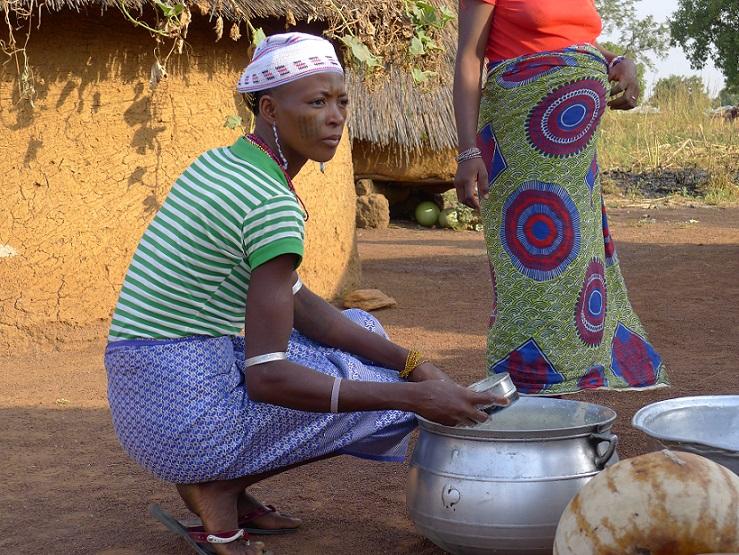- Home
- Worldwide
- CIRAD worldwide
- Projects
- AFRICA-MILK project
Promoting ecological intensification and inclusive value chains for sustainable African milk sourcing - AFRICA-MILK

Production of wagashi, a fresh cheese obtained by acid curdling, an important source of income for the Fulani people of northern Benin © G. Duteurtre, CIRAD
Issues
For several years, the West African market has been booming due to population growth. The dairy sector has considerable room for development. At present, only 2% of what pastoral and agropastoral farms produce is processed by dairies. This is due to the isolation of farms and the fact that their production is seasonal and small scale, but also to inefficient collection systems. Industries thus prefer to import powdered milk at lower cost. However, better integration of dairy farming into national economies could be a powerful driver of development, especially in the Sahel, where milk is a key cultural element. Consequently, the idea of strengthening local dairy value chains is gradually gaining ground.
Description
The project sets up local dairy innovation platforms bringing together producers, collectors, dairies and researchers. Together, these actors will be able to choose the technical and institutional innovations suited to their context and their expectations. Four main activities are implemented:
- Initial assessments of production and collection, and establishment of multi-stakeholder dairy innovation platforms;
- Co-design of efficient, inclusive collection systems;
- Co-design of intensive, eco-friendly dairy production systems;
- Monitoring-assessment and promotion of project outcomes.
Involving nine processors in four different countries, the actions of the project thus cover a variety of agro-climatic and production contexts. The creation of high value-added dairy chains provides new opportunities for including young people and female agricultural entrepreneurs, not only as producers, but also as suppliers of inputs and services. Africa-Milk will take account of the risks of exclusion facing women and young people in household dairy production, offering them the possibility of participating in innovation platforms.
Expected impacts
- An increase in farmers’ incomes;
- The creation of jobs and stimulation of the dairy sector;
- An improvement in food security thanks in particular to higher quality products;
- More eco-friendly production and collection systems.
Contract partners
Institut Sénégalais de Recherche Agricole (ISRA - Senegal), Institut de l’Environnement et de Recherches Agricoles (INERA - Burkina Faso), Fiompiana Fambolena Malagasy Norvéziana (FIFAMANOR - Madagascar), University of Nairobi (Kenya) and Wageningen University & Research (Netherlands)
























